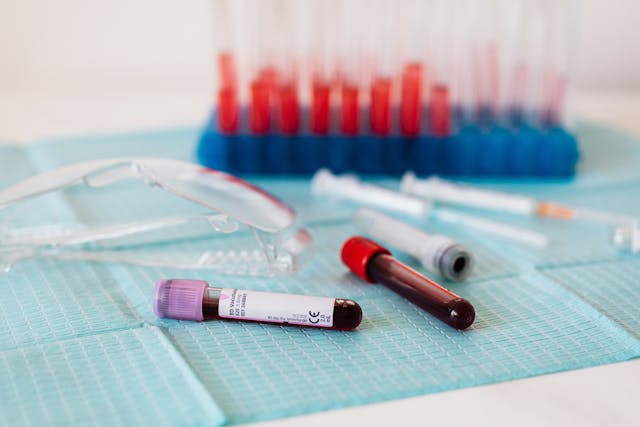A team led by researchers from UCL and University Medical Center Goettingen has developed a straightforward blood test employing artificial intelligence (AI) to predict Parkinson’s disease up to seven years before symptoms manifest. Parkinson’s disease stands as the fastest-growing neurodegenerative disorder worldwide, affecting nearly 10 million people. This progressive condition results from the degeneration of nerve cells in the substantia nigra region of the brain, responsible for movement control. The loss of these cells impairs dopamine production, driven by the accumulation of alpha-synuclein protein.
Currently, treatment involves dopamine replacement therapy administered after symptoms like tremors, slowed movement, and cognitive issues appear. Early detection holds promise for initiating treatments that could protect dopamine-producing brain cells, potentially slowing or halting disease progression. Professor Kevin Mills, senior author from UCL Great Ormond Street Institute of Child Health, emphasised the importance of diagnosing Parkinson’s before symptom onset to safeguard existing brain cells. The team utilised cutting-edge technology to identify new biomarkers for the disease and developed a test intended for integration into large NHS laboratories within two years, given adequate funding.
Published in Nature Communications, their research demonstrated that a panel of eight blood-based biomarkers, analysed using machine learning, achieved 100% diagnostic accuracy for Parkinson’s. Testing involved 72 patients with Rapid Eye Movement Behaviour Disorder (iRBD), a precursor to synucleinopathies, including Parkinson’s. The AI successfully identified 79% of iRBD patients sharing biomarker profiles with Parkinson’s patients. Over a decade-long follow-up, the AI predictions correlated with clinical outcomes, accurately forecasting Parkinson’s onset up to seven years in advance for 16 patients initially diagnosed with iRBD.
Dr Michael Bartl, co-first author from University Medical Center Goettingen, highlighted the potential of identifying Parkinson’s patients years before symptoms emerge, enabling earlier intervention with potential disease-modifying therapies. The identified biomarkers, linked to inflammation and protein degradation processes, present new avenues for drug development. Co-author Professor Kailash Bhatia, from UCL Queen Square Institute of Neurology, and his team are assessing the test’s precision using samples from high-risk populations, such as individuals with genetic mutations predisposing them to Parkinson’s.
Future efforts aim to simplify the test into a blood spot format, facilitating more accessible sample collection and mail-in testing. Funding from EU Horizon 2020, Parkinson’s UK, NIHR GOSH Biomedical Research Centre, and the Szeben-Peto Foundation supported this groundbreaking research. Professor David Dexter, Director of Research at Parkinson’s UK, hailed the study’s potential to revolutionise Parkinson’s diagnosis with a non-invasive blood test, contrasting it favourably with more invasive lumbar punctures used in current research. Hopefully, this blood-based approach could distinguish Parkinson’s from similar conditions early on, enhancing diagnostic precision and paving the way for timely interventions.
The development of this AI-driven blood test represents a significant advancement in Parkinson’s research, promising earlier diagnosis and potentially transformative treatments. The ongoing validation and future refinements hold promise for widespread clinical application, offering hope to millions affected by this challenging neurodegenerative disease.
More information: Jenny Hällqvist et al, Plasma proteomics identify biomarkers predicting Parkinson’s disease up to 7 years before symptom onset, Nature Communications. DOI: 10.1038/s41467-024-48961-3
Journal information: Nature Communications Provided by University College London








